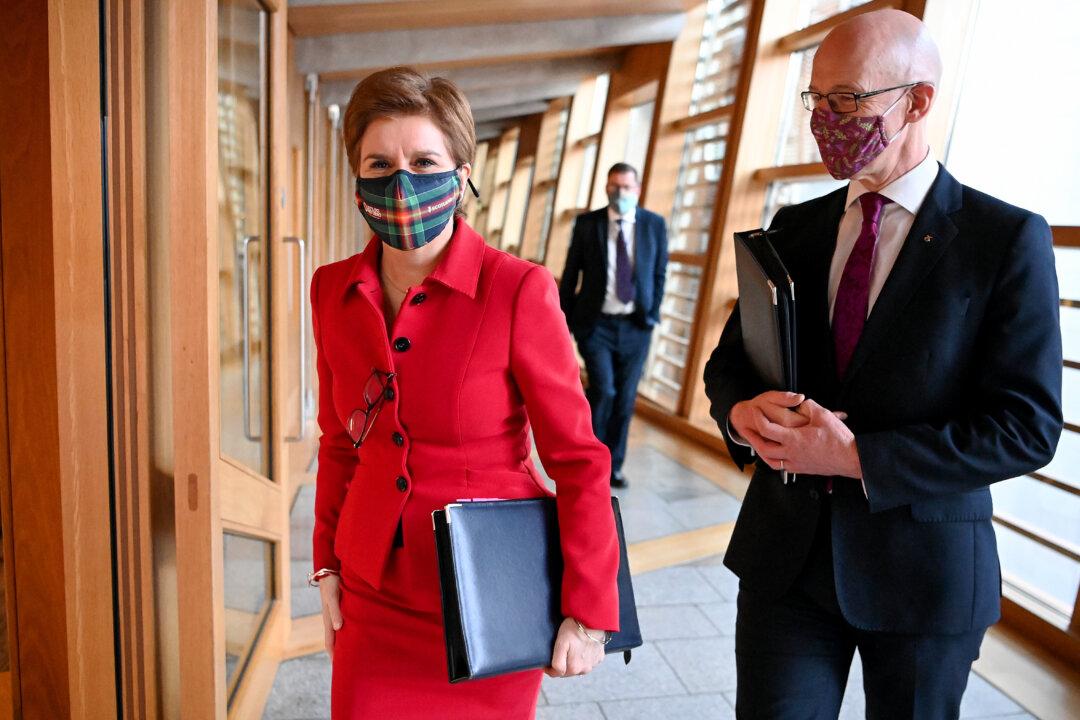The Scottish government said it will “switch off” its COVID-19 vaccine passport scheme for domestic use, saying it would “no longer be appropriate” as free testing has been scrapped.
Under the mandatory vaccine passport scheme, which came into effect in October 2021, Scots had to show their vaccination status before entering a nightclub or attending a large event, such as some concerts and football matches.





